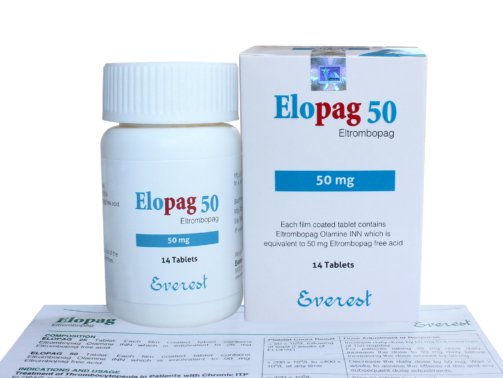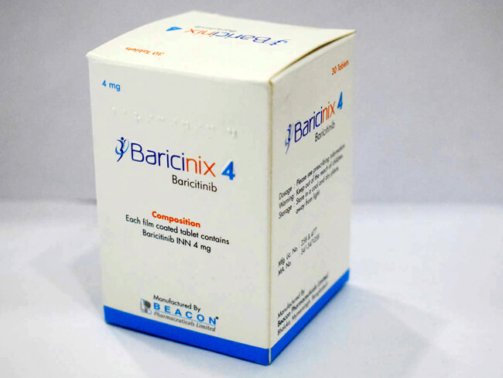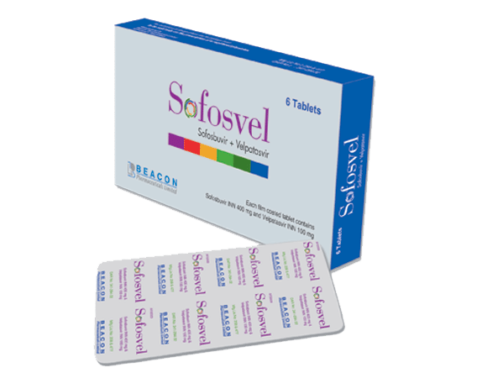Brigatinib 90 mg (Alunbrig)
0.00$
Briganix 90 mg, a breakthrough medication, provides renewed hope for patients with ALK-positive metastatic non-small cell lung cancer, offering accelerated approval based on robust evidence of tumor response rates and duration of response
- Active Ingredient: Brigatinib 90 mg
- Excipients: Colloidal silicon dioxide, magnesium stearate, hypromellose, sodium starch glycolate, microcrystalline cellulose, and film-coating agents. Iron oxides, titanium dioxide, and polyethylene glycol are all included in the film coating.
- Gastrointestinal issues: Nausea, diarrhea, vomiting
- Respiratory complications: Pneumonitis, cough, dyspnea
- Neurological effects: Fatigue, headache, dizziness
- Cardiac effects: Hypertension, bradycardia
- Musculoskeletal issues: Myalgia, arthralgia
Brigatinib, an oral tyrosine kinase inhibitor (TKI) that is sold under the brand name Alunbrig, is mainly used to treat metastatic non-small cell lung cancer (NSCLC) that is anaplastic lymphoma kinase (ALK) positive. It is especially intended for patients who have developed side effects with crizotinib, another ALK inhibitor, or who are intolerant to it. Targeting ALK mutations, particularly those that are resistant to earlier ALK inhibitors, has shown bragitinib to be highly effective.
Composition and Formulation
Each Brigatinib 90 mg tablet contains:
Mechanism of Action
Brigatinib functions by blocking ALK, a receptor tyrosine kinase that is essential for cell division and viability. Uncontrolled cell proliferation is caused by continual signaling caused by genetic changes in ALK. By attaching itself to the ALK’s ATP-binding site, bragitinib inhibits its function and successfully stops the growth of tumors. The therapeutic promise of brentinib is further enhanced by the discovery that it inhibits other kinases, including ROS1 and the insulin-like growth factor 1 receptor (IGF-1R).
Indications
Brigatinib is indicated for:
The management of adult patients with metastatic, ALK-positive NSCLC who have had crizotinib treatment in the past.
Patients with advanced non-small cell lung cancer (NSCLC) or those who have become resistant to conventional ALK inhibitors.
Off-label usage in some ROS1-positive non-small cell lung cancer cases, pending additional clinical confirmation.
Dosage and Administration
Recommended Dosage:
For the first seven days, the usual starting dose is 90 mg once day. If there is no discernible toxicity after seven days, the dosage is raised to 180 mg once daily. It is recommended that tablets be taken orally at the same time every day, with or without meals. Unless it is almost time for the next planned dose, missed doses should be taken as soon as remembered. The dose that was missed should.
Pharmacokinetics
Absorption: Brigatinib is quickly absorbed, taking one to four hours to reach peak plasma concentrations.
Metabolism: Cytochrome P450 3A4 (CYP3A4) enzymes are mainly responsible for its metabolism in the liver.
Elimination: The medication has a half-life of roughly 24 hours and is eliminated primarily through urine (25%) and feces (65%), which supports once-daily administration.
Efficacy and Clinical Trials
Brigatinib dramatically increased overall response rates (ORR) and progression-free survival (PFS) in patients with ALK-positive non-small cell lung cancer (NSCLC), according to clinical trials like the ALTA study. Because of its strong penetration of the central nervous system (CNS), it has demonstrated improved efficacy in controlling brain metastases, a frequent problem in ALK-positive NSCLC.
Side Effects
Common side effects of Brigatinib 90 mg include:
Serious adverse reactions may include interstitial lung disease, pulmonary toxicity, and elevated liver enzymes.
Warnings and Precautions
Monitoring for Hypertension: Because of the possibility of hypertension, blood pressure should be checked often.
Lung Toxicity: If you experience any early lung symptoms, you should see a doctor right away.
Hepatic Impairment: Prior to and throughout treatment, liver function tests must to be carried out.
Drug Interactions: Strong CYP3A inducers or inhibitors should not be used with bragitinib.
Use in Pregnancy: Pregnancy should be avoided while receiving treatment because it may harm the fetus.
Drug Interactions
CYP3A4 Inhibitors: Ritonavir and ketoconazole may raise the exposure to bragitinib, which could be hazardous.
CYP3A4 Inducers: The efficacy of rifampin and carbamazepine may be diminished.
Antacids: Brigatinib’s absorption may be changed by proton pump inhibitors.
Conclusion
Bragitinib 90 mg (Alunbrig), a potent ALK inhibitor, is a helpful treatment choice for ALK-positive non-small cell lung cancer, particularly in patients whose response to crizotinib has declined. Because of its high efficacy and robust CNS penetration, it is the suggested treatment for brain metastases. On the other hand, its use requires careful monitoring for adverse effects and drug interactions. Regular follow-ups with medical professionals guarantee the best possible patient outcomes and the efficient management of potential side effects.
Order Now At Mdx Pharma bd….
To order from MDX Pharma BD, visit their website at https://mdxpharmabd.com, where you can browse products and place orders online. For inquiries or orders via email, contact emedicarepharma@gmail.com. Alternatively, call (+88) 01929123476. Their address is 29, Abdullahpur, Uttara, Dhaka-1230, Bangladesh.
1. Is brigatinib a medication used in chemotherapy?
It’s critical to realize that brigatinib functions differently than other chemotherapy medications. It stops the growth and spread of cancer cells by specifically targeting them. The medication used for this treatment is administered as described in the treatment schedule below. This therapy is ongoing.
2. Is brigatinib able to pass through the blood-brain barrier?
Its special dimethylphosphine oxide (DMPO) structure makes it possible for the medication to cross the blood-brain barrier and keep the brain’s plasma concentration stable. Numerous ALK fusions and medication resistance mutations can be inhibited by it.
3. What supplement crosses the blood-brain barrier?
Since it enters against a gradient in blood/CSF concentration, it does so by an active transport process.
Because it is more stable and less costly, cyanocobalamin is frequently chosen for supplements. According to research, methylcobalamin and cyanocobalamin are effective for a number of illnesses, such as pernicious anemia and B12 insufficiency.
Since vitamin D and vitamin B12 have different vital roles in your body, you can take them together without risk. When combined, these vitamins can promote bone health, energy generation, and general well-being, making them an effective supplement to your regular regimen.
Vitamin C and vitamin B-12, vitamin A supplements and foods high in vitamin A, folic acid (vitamin B9) and vitamin B12, and vitamin E and vitamin K are among the vitamins that should not be taken together or have dosage restrictions.
Vitamin D3 and vitamin D2 are the two types of vitamin D that are found in supplements. Both can help treat vitamin D deficiency, but since D3 is a little more active and hence a little more effective, most doctors advise it. Animals, including humans, naturally produce vitamin D3.
| Product Name | Briganix |
|---|---|
| Generic Name | Brigatinib |
| Formulation | Tablet |
| Available Pack Size | 30’s Pot |
| Available Strength | 90 mg, 180 mg |

 Cart is empty
Cart is empty 



